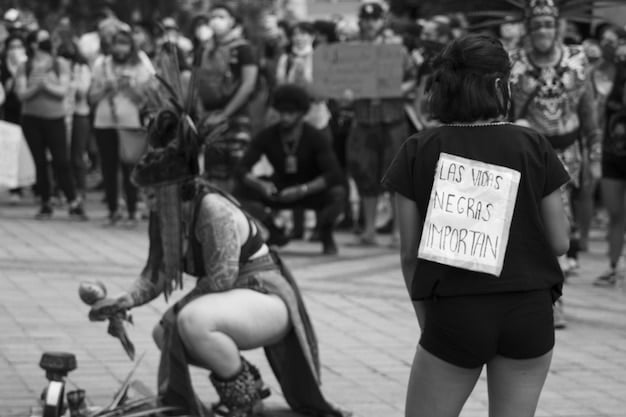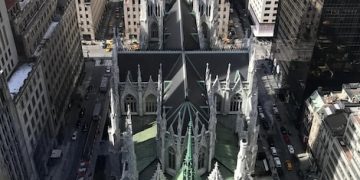7-Day US Civil Rights Trail Itinerary: History & Reflection

Embark on a transformative 7-day US Civil Rights Trail itinerary, exploring pivotal landmarks and museums that chronicle the struggle for equality and justice in America, fostering deep reflection on this vital history.
Delve into the heart of American history with a 7-Day US Civil Rights Trail Itinerary: A Journey Through History and Reflection. This immersive experience takes you to the key sites of the Civil Rights Movement, offering a powerful and educational exploration of the fight for equality.
Planning Your Civil Rights Trail Adventure
Embarking on the Civil Rights Trail requires careful planning to maximize your experience and ensure you visit the most significant sites. This section outlines essential pre-trip considerations, transportation options, and accommodation suggestions to help you prepare for your journey.
Essential Pre-Trip Considerations
Before you set off, it is crucial to research and understand the historical context of the Civil Rights Movement. Reading books, watching documentaries, and exploring online resources can provide a deeper appreciation of the sites you will visit.
- Timing: Consider traveling during the shoulder seasons (spring or fall) to avoid large crowds and extreme weather.
- Research: Familiarize yourself with the key figures, events, and locations of the Civil Rights Movement.
- Respect: Approach each site with reverence and sensitivity, understanding the profound impact of the events that occurred there.
Transportation Options Along the Trail
Navigating the Civil Rights Trail can be done in several ways, each offering a unique perspective and convenience. The best option depends on your budget, time constraints, and personal preferences.
- Driving: Renting a car provides flexibility and allows you to explore at your own pace. The trail spans several states, so a car is ideal for covering long distances.
- Flying: Consider flying between major cities along the trail to save time. Airports like Atlanta (ATL) and Birmingham (BHM) are convenient hubs.
- Bus Tours: Organized bus tours offer guided experiences with knowledgeable experts, taking care of logistics and providing valuable insights.
Effective planning ensures a smooth start to your journey, enabling you to focus on the profound experiences that await.
Day 1: Atlanta, Georgia – Birthplace of the Movement
Begin your journey in Atlanta, Georgia, a city deeply rooted in the Civil Rights Movement and the birthplace of Martin Luther King Jr. This day focuses on exploring sites dedicated to his life and legacy.

Start your day by visiting the Martin Luther King Jr. National Historical Park. This park encompasses several key sites:
- Ebenezer Baptist Church: Where King served as co-pastor with his father. Reflect on his sermons and the church’s pivotal role in the movement.
- The King Center: Explore exhibits detailing King’s life, work, and philosophy of nonviolent resistance.
- King’s Birth Home: Take a ranger-led tour of the house where King was born and spent his early years.
In the afternoon, visit the National Center for Civil and Human Rights, which connects the American Civil Rights Movement to today’s global human rights struggles. Interactive exhibits and powerful artifacts provide a comprehensive understanding of the ongoing fight for equality.
Spend time reflecting on King’s profound impact and the foundations of the Civil Rights Movement, setting the tone for the days ahead.
Day 2: Birmingham, Alabama – A Crucible of Change
Travel to Birmingham, Alabama, a city that played a pivotal role in the Civil Rights Movement due to its intense segregation and the violent resistance faced by activists. Today, you’ll explore sites that bear witness to this tumultuous history.
Begin at the Birmingham Civil Rights Institute, which offers a comprehensive overview of the Civil Rights Movement in Birmingham and beyond. Interactive exhibits detail the events of 1963, including the children’s marches and the 16th Street Baptist Church bombing.
16th Street Baptist Church
Visit the 16th Street Baptist Church, a central meeting place for civil rights organizers and the site of a devastating bombing that killed four young girls in 1963. The church stands as a somber reminder of the era’s brutality and the resilience of the community.
Kelly Ingram Park
Across the street from the church is Kelly Ingram Park, where peaceful protesters, including children, were met with fire hoses and police dogs. Statues throughout the park depict these harrowing events, offering a stark visual representation of the struggle.
Reflect on the courage and determination of the activists who stood against injustice in Birmingham, a city that became a symbol of resistance and change.
Day 3: Montgomery, Alabama – Echoes of Freedom
Continue to Montgomery, Alabama, where several seminal events in the Civil Rights Movement unfolded. This day focuses on the Montgomery Bus Boycott and the march to Selma.
Start at the Rosa Parks Museum, which commemorates the pivotal moment when Rosa Parks refused to give up her seat on a bus, sparking the Montgomery Bus Boycott. The museum details the events leading up to the boycott and its profound impact on the Civil Rights Movement.
Dexter Avenue King Memorial Baptist Church
Visit the Dexter Avenue King Memorial Baptist Church, where Martin Luther King Jr. served as pastor during the Montgomery Bus Boycott. This church played a central role in organizing and supporting the boycott.
The National Memorial for Peace and Justice
In the afternoon, visit The National Memorial for Peace and Justice, also known as the Lynching Memorial. This sobering memorial documents the thousands of African Americans who were lynched in the United States between 1877 and 1950, forcing visitors to confront the brutal legacy of racial terror.
Montgomery’s historical sites evoke the spirit of resistance, highlighting the power of collective action in the fight for civil rights and justice.
Day 4: Selma, Alabama – Marching Towards Justice
Travel to Selma, Alabama, the starting point of the historic march to Montgomery. This day is dedicated to understanding the significance of the Selma to Montgomery march and the struggle for voting rights.

Begin by crossing the Edmund Pettus Bridge, the site of “Bloody Sunday,” where peaceful marchers were violently attacked by law enforcement on March 7, 1965. Reflect on the courage of those who faced such brutal opposition in their quest for voting rights.
Visit the National Voting Rights Museum and Institute, which chronicles the events leading up to the Voting Rights Act of 1965. Exhibits detail the sacrifices and struggles of activists who fought for the right to vote.
- Brown Chapel AME Church: A staging point for the Selma to Montgomery marches.
- Interpretive Centers: Learn about the strategies and challenges faced by civil rights leaders.
- Interviews: Hear firsthand accounts from those who participated in the marches.
The journey to Selma is a poignant reminder of the ongoing struggle for voting rights and the importance of civic engagement in upholding democratic principles.
Day 5: Little Rock, Arkansas – A Test of Integration
Head to Little Rock, Arkansas, where the integration of Central High School became a defining moment in the Civil Rights Movement. This day focuses on understanding the challenges and triumphs of school desegregation.
Visit Little Rock Central High School National Historic Site, where in 1957, nine African American students, known as the Little Rock Nine, faced intense opposition and violence as they attempted to integrate the all-white school. A visitor center provides historical context and insights into the events that unfolded.
Memorial Park
Take time to stroll through the park. Reflect on the resilience of the Little Rock Nine and the broader struggle for equal access to education.
The Daisy Bates House
Visit the former home of civil rights leader Daisy Bates. She was a central figure in supporting and guiding the Little Rock Nine through their ordeal. The house has been designated a National Historic Landmark.
Little Rock’s story underscores the importance of perseverance and the ongoing need to challenge systemic inequalities in education and beyond.
Day 6: Memphis, Tennessee – Where a Dream Was Silenced
Travel to Memphis, Tennessee, the city where Martin Luther King Jr. was assassinated. This day is dedicated to honoring King’s legacy and exploring the events surrounding his death.
Visit the National Civil Rights Museum at the Lorraine Motel, where King was assassinated on April 4, 1968. The museum meticulously documents the history of the Civil Rights Movement, culminating in the events of that fateful day.
- Lorraine Motel: The site of King’s assassination, preserved as a memorial.
- Exhibits: Explore interactive displays detailing key moments in the movement.
- Personal Stories: Hear firsthand accounts from civil rights activists.
In the afternoon, visit Clayborn Temple, a historic church that served as a focal point for civil rights activities in Memphis. Learn about the role of the church in organizing protests and advocating for social change.
Reflect on King’s enduring legacy and the unfinished work of the Civil Rights Movement, recognizing the continued need for advocacy and activism.
Day 7: Return and Reflect
As your 7-day Civil Rights Trail journey comes to an end, take this day to travel back home and reflect on the profound experiences and lessons learned.
Spend time journaling, discussing your experiences with others, and considering how you can apply the lessons of the Civil Rights Movement to your own life. Consider how you can continue to support efforts to promote equality, justice, and human rights in your community and beyond.
- Journaling: Record your thoughts, feelings, and reflections on the sites you visited.
- Discussions: Share your experiences with friends and family to deepen your understanding and inspire others.
- Action: Identify concrete ways to support civil rights causes and promote social change.
By internalizing the lessons of the Civil Rights Movement, you can become a more informed and engaged citizen, contributing to a more just and equitable society.
| Key Point | Brief Description |
|---|---|
| 📍 Atlanta, GA | Birthplace of the Movement; visit MLK Jr. National Historical Park. |
| 💣 Birmingham, AL | Site of key protests; explore Civil Rights Institute and 16th Street Church. |
| 🚌 Montgomery, AL | Home of Rosa Parks Museum and the Lynching Memorial. |
| ✊ Selma, AL | Cross the Edmund Pettus Bridge and visit the Voting Rights Museum. |
Frequently Asked Questions
▼
The shoulder seasons (spring and fall) are ideal, offering pleasant weather and fewer crowds. Summers can be hot and humid, while winters may bring occasional cold snaps.
▼
Costs vary depending on your travel style, accommodation choices, and transportation preferences. Budget travelers can expect to spend around $100-150 per day, while luxury travelers might spend $300+.
▼
Many sites are accessible, but it’s best to check with each location in advance to confirm accessibility features. Websites often provide information on ramps, elevators, and accessible restrooms.
▼
Dress respectfully and comfortably. Comfortable shoes are essential, as you’ll be doing a lot of walking. Consider the weather and dress accordingly, with layers for cooler days.
▼
Read books, watch documentaries, and explore online resources. Websites like the National Civil Rights Museum and the King Center offer extensive information.
Conclusion
The 7-day US Civil Rights Trail itinerary offers a profound and transformative journey through American history. By visiting these pivotal sites, you gain a deeper understanding of the struggles, sacrifices, and triumphs of the Civil Rights Movement, fostering reflection and inspiring continued advocacy for equality and justice.





